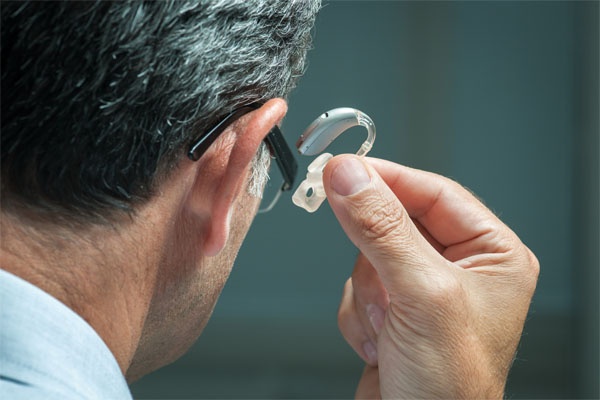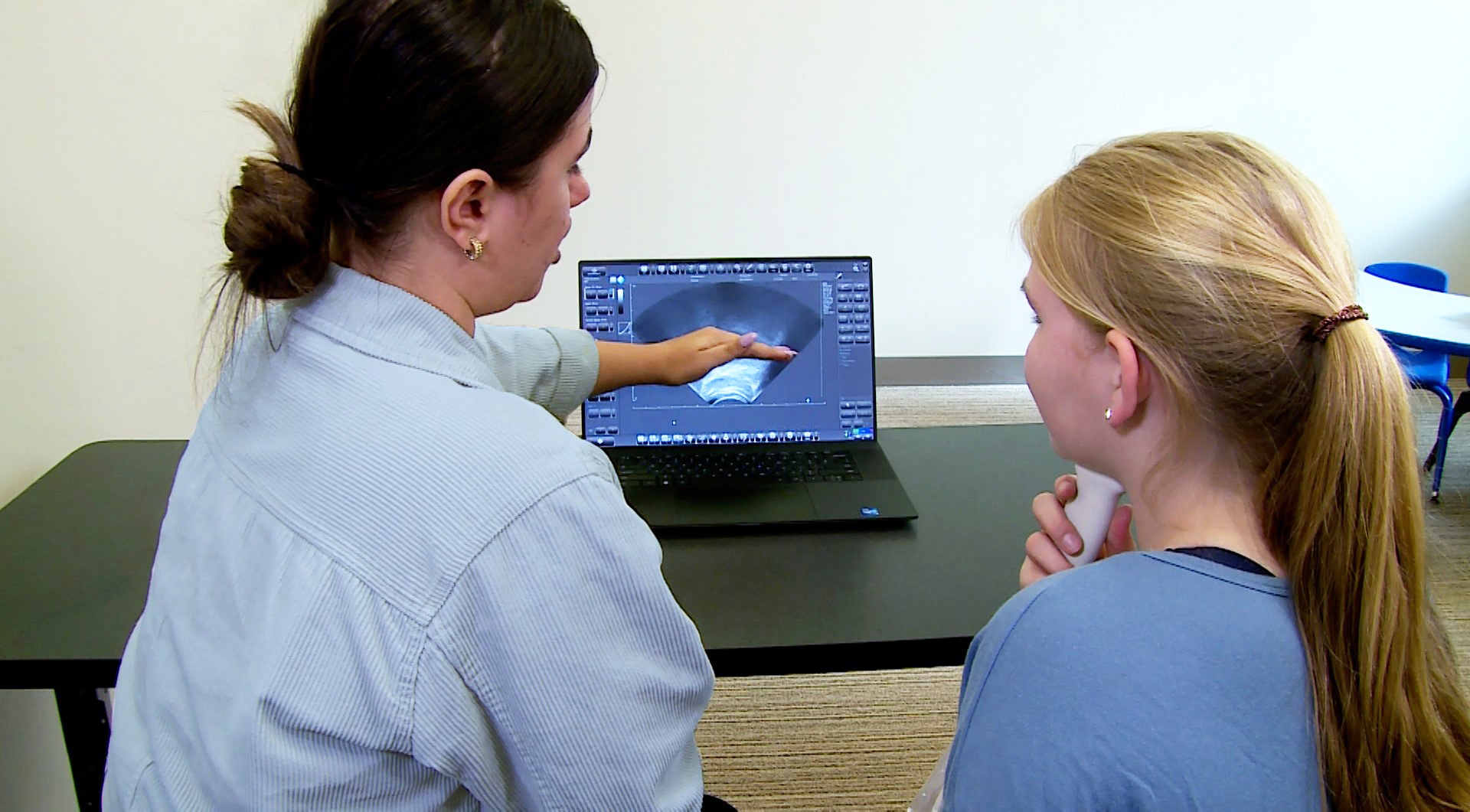If you know someone who is recovering from a stroke or other acquired brain injury, you may have experienced a heightened level of difficulty when participating in conversations. Aphasia, or language difficulties as a result of a stroke, can impact a person’s ability to express themselves or understand information. This breakdown in communication can lead to feelings of isolation and distress.
Supported Conversations for Adults with Aphasia (SCA)
Tags: Speech, Language, Communication, Support, Stroke, Caregiving, talking, Communication Access, Speech therapy, Stroke recovery, Aphasia
What is Language?
Language is how a mother tells her baby "I love you" with a sing-song voice. It's how a 3-year-old tells a knock-knock joke while trying to hold back their laughter. It's how a teacher explains the rules of long division to her fidgety students. Language connects us, and language helps us learn.
At the most basic level, language is a set of symbols that a community has agreed upon to stand for objects and ideas. You use these symbols to talk listen, read, and write. In the case of American Sign Language, you use language to produce signs and interpret signs. Having effective language skills means that you can express your ideas and can understand when others express their ideas. Language is uniquely human, and babies begin to build the foundation for language even before they are born!
It can be helpful to think about the difference between language and speech. When your child says "I wuv my wed twuck," (I love my red truck), it doesn't sound right - that's the speech part - but she is sharing her thoughts on something she really likes - that's the language part.
Language includes which words you know and which words you chose to use. It is how you put those words together, the tone of voice that you use, and whether the person across from you understands what you mean. You use language to solve story problems in math class and write an essay in English class. Language skills are what allow you to build relationships with your family and friends.
Not having access to language is frustrating. Imagine being dropped in the middle of a foreign country with a pounding headache. You need to find a drug store, but how would you communicate what you need? How would you understand directions if someone did figure out what you were trying to say? You're in pain, you're confused, and you can't get your problem solved.
Now think of a two-and-a-half-year-old boy who doesn't yet say any words. His head is full of wants and needs, but he has no clear way of letting others know what they are. He also has trouble understanding what his parents want him to do when they give him simple directions. He often throws things when he can't be understood or doesn't understand what his parents want him to do. All of this is because he has difficulty with speaking and listening, that is, with language.
Language underpins everything we do, and having difficulty with language skills at any age means you can't fully participate in everyday life. Cleveland Hearing & Speech Center has a team of licensed speech-language pathologists (SLPs) with expertise in building language skills.
Tags: Speech, Language, Communication, literacy, Learning, Voice, toddler, talking, Early Intervention, Speech therapy
Over-the-Counter Hearing Aids - What You Should Know
The announcement by the Food and Drug Administration finalizing the ruling that allows for Over-the-Counter (OTC) hearing aid sales is good news for increased access to hearing health care. It will provide increased access to hearing aids for adults (ages 18 and older) who have mild to moderate hearing loss. This can be an initial step to the acceptance and treatment of hearing loss, much like reading glasses for eyesight. OTC hearing aids are not appropriate for children or those with moderate to severe or profound hearing loss.
As an agency with a 101-year history of providing access to hearing health care for all people including marginalized and vulnerable populations, Cleveland Hearing & Speech Center (CHSC) believes this is a step in the right direction for a more global acceptance of the treatment of hearing loss and with Baby Boomers hitting retirement ages, it could not be timelier.
However, at CHSC, we encourage people to undergo an audiologic evaluation (hearing test) before purchasing any hearing aids. A proper diagnosis of the degree of hearing loss results in a more accurately programmed hearing aid – much like a proper prescription for glasses. A hearing evaluation will also identify any underlying medical conditions that may be causing the hearing loss.
CHSC's commitment to hearing health will continue into the next century. We will continue to provide professional audiology services to those who purchase their hearing aids – now including OTC aids - but may find they need additional support.
In addition, CHSC will continue to provide our full range of hearing aid services for all degrees of hearing loss and all ages. Low-cost and no-cost options for hearing aids may include health insurance with hearing aid benefits such as some Medicare Advantage plans, Medicaid, and our Audiology Patient Assistance Program (APA).
Tags: Hearing Aid, Audiology, Hearing Aids, Hearing, Hearing Loss Prevention, Hard of Hearing, Hearing Loss, "ears", Communication Access, Medicare
Summer Activities to Practice Word-Finding for Those with Aphasia
Communicating with someone recovering from a stroke or maintaining skills after a neurodegenerative diagnosis may be difficult. Changes in communicative abilities can be either expressive (the ability to speak or communicate) or receptive (the ability to understand spoken or written information), leading to breakdowns in communication. Any changes in communication can lead to feelings of frustration, isolation, or distress. We offer some fun summer activities to help practice word-finding and repair communication breakdowns. These activities require little if any, materials or preparation to engage!
Tags: Speech, Language, Communication, Stroke, Brain Injury, talking, Speech therapy, Stroke recovery, Aphasia
Stroke Recovery: Communication Tips for People with Aphasia
Take your time when speaking. Speak at your own pace. Even if your communication partner is speaking quickly, set your pace and take your time. Your message is important and deserves to be heard.
Tags: Speech, Language, Communication, Support, Stroke, Caregiving, Brain Injury, talking, Communication Access, Speech therapy, Stroke recovery
Ultrasound Speech Therapy Tackles "R" and "S" Difficulties
Does your child struggle with producing the “r” sound? Do they have a slushy “s” sound? If this is true for your child who is 8 years of age or older, they have what is called residual speech sound disorder (RSSD). Many children with RSSD have been in years of therapy with little to no improvement in their speech. This can be frustrating and discouraging for both the child and their parents.
Tags: Speech, Language, Communication, talking, Speech therapy, ultrasound, ultrasound speech therapy, R speech therapy
Tips for Communicating with Someone after a Stroke
Communicating with someone after they have had a stroke, brain injury, or other illness resulting in communication difficulties can be challenging. These difficulties can be either expressive (the ability to speak or communicate) or receptive (the ability to understand spoken or written information), leading to breakdowns in communication. Any changes in communication can lead to feelings of frustration, isolation, or distress. Making a few changes in the way you communicate can make a world of difference!
Tags: Speech, Language, Communication, Stroke, Caregiving, Brain Injury, talking, Speech therapy, Stroke recovery
Brain Injury Awareness and Recovery
In 2022, Brain Injury Awareness Month highlights #MoreThanMyBrainInjury by bringing awareness to some brain injury facts and statistics from the Brain Injury Association of America (BIAA).
Tags: Speech, Language, Communication, Brain Injury, talking, Communication Access, Speech therapy, Stroke recovery
Morning Communication Activities at Home
You may find it challenging to access beneficial resources that allow you to properly care for your loved one. We have researched some at-home activities that encourage communication for adults who are recovering from a stroke or maintaining skills after a neurodegenerative diagnosis. These morning activities consist of routines that get you both up and moving and allow for independent participation.
Tags: Speech, Language, Communication, Support, Caregiving, Brain Injury, Voice, talking, Speech therapy, Stroke recovery
5 Self-Care Tips for Caregivers
As a caregiver, it is easy for us to overlook our own physical, mental and emotional needs as we care for others. This can quickly lead to feeling burned out, which would not be beneficial for us or our loved ones.
Tags: Communication, Support, Caregiving

















